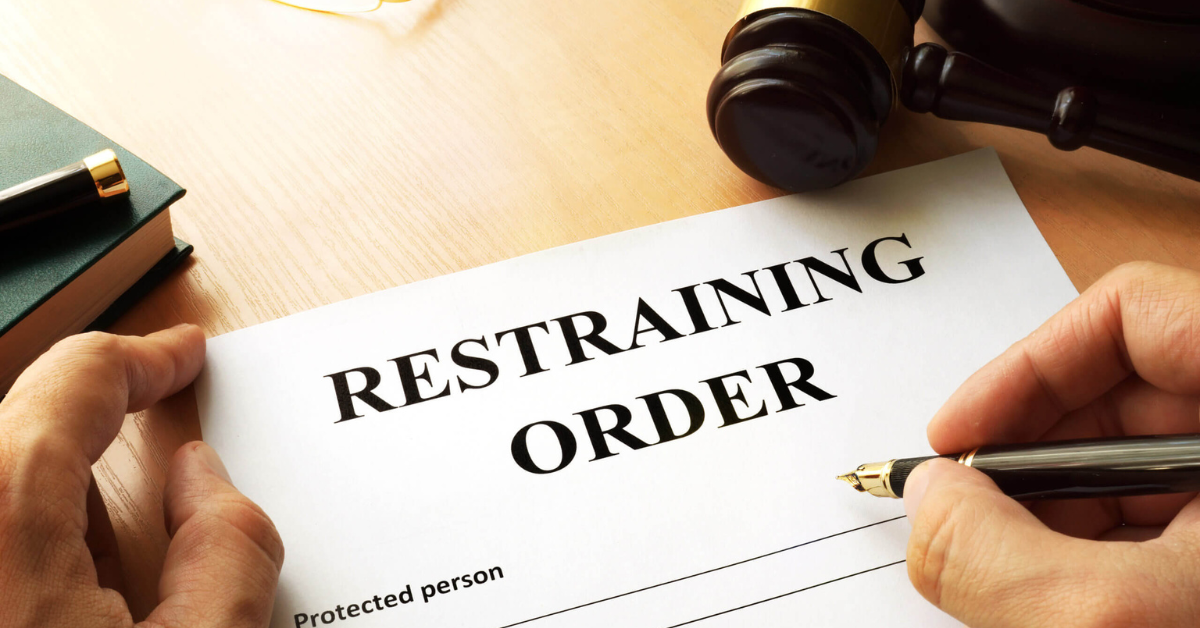Page not found
We're sorry, the page you were trying to find does not seem to exist.
Massachusetts offers worker’s compensation to pay employees who were injured on the job. This covers medical benefits and even lost wages due to recovering from injuries. If you have a pre-existing condition, it may impact your claim on worker’s compensation. Contact a worker’s compensation attorney to determine how to best proceed with your claim.

Does Worker’s Comp. Cover Pre-Existing Conditions?
Massachusetts provides worker’s compensation to employees who were injured on the job, regardless of whether or not the employee had a pre-existing injury. However, the injury must be a major injury sustained in the workplace that required medical treatment or led to lost wages due to taking time off work. If an employee has a pre-existing condition, they may be eligible to file for worker’s compensation for that specific condition if the condition was aggravated by an incident or repetitive motion at work. For example, if you are injured working in construction, consistent heavy lifting may lead to a serious injury over the course of the day. If you already have a pre-existing back injury, it may be aggravated by this motion.
You cannot be denied compensation just based on having a pre-existing injury. When you file, it is best to consult with an experienced attorney to understand your legal rights and avoid the risk of getting denied.
How Does a Pre-Existing Condition Impact a Worker’s Compensation Claim?
The presence of a pre-existing condition can significantly impact the outcome of a worker’s compensation claim. Insurance companies may attempt to argue that the injuries sustained were solely a result of the pre-existing condition rather than the workplace incident. This tactic could potentially lead to denial or reduction of benefits if not properly addressed.
In such cases, having strong legal representation becomes crucial. A knowledgeable worker’s compensation attorney can gather evidence, such as medical records and expert testimony, to demonstrate the exacerbation of the pre-existing condition due to work-related activities. Additionally, they can advocate on behalf of the injured employee to ensure fair treatment and maximum compensation.
How to Successfully File a Claim with a Pre-Existing Condition
There are a few steps you can take as reassurance that you claim will have the best chance of getting approved. Successfully filing a worker’s compensation claim requires consulting with a worker’s compensation attorney, who can provide invaluable guidance through the legal process based on their legal knowledge and years of experience handling claims.
- Seek Medical Attention: Immediately seek medical attention following your injury at work. Documentation of this medical attention is the first evidence that can support your claim.
- Notify Your Employer: Inform your employer as soon as possible about the injury that was sustained while you were working. Regardless of whether or not your pre-existing condition impacted the injury, it is important to follow safety and reporting procedures outlined by Massachusetts and your company.
- Gather Evidence: Collect all communications regarding the accident at work and medical attention that followed. This can also help your attorney understand what documentation you could provide that could support your claim.
- Remain Transparent: Transparency is best when it comes to filing a successful claim. Be honest when filing your claim and transparent about your pre-existing condition if it impacts your claim or injuries.
- Follow Medical Advice: Listen to any suggestions or recommendations for treatment from healthcare professionals. Ensure that you attend all appointments recommended by a healthcare professional to help treat your injuries. Any appointments or treatments can serve as evidence in your claim.
- Maintain Records: Aside from gathering initial evidence, maintain any further records of communication with your employer and company, expenses related to your incident (such as medical bills), and any other supporting paperwork, such as records of missed work.
While pre-existing conditions could complicate your worker’s compensation claim, it does not mean that you cannot receive benefits. By following proper steps following your incident, you will have the best chance at receiving compensation. Employees in Massachusetts are entitled to worker’s compensation benefits if injured at work, regardless of whether or not they had a pre-existing condition. A worker’s compensation attorney will provide you with the proper guidance to understand the claims process. They can help you move forward with filing your claim and advocate on your behalf if needed during the claims process. If your claim is denied, they can also help you appeal the decision.
Disclaimer
The information contained in this blog is for general information purposes only. Bonville & Howard assumes no responsibility for errors or omissions in the contents of the blog.
In no event shall Bonville & Howard be liable for any special, direct, indirect, consequential, or incidental damages or any damages whatsoever, whether in an action of contract, negligence, or other tort, arising out of or in connection with the use of this blog or the contents of this blog. Bonville & Howard reserves the right to make additions, deletions, or modifications to the contents of this blog at any time without prior notice.
Car accidents happen unexpectedly. According to the State Highway Safety Report, Massachusetts experiences an average of 355 fatalities from car accidents per year. This does not include the number of non-fatal accidents.
The first thing to determine after a car accident is who was at fault. So, what happens when a car accident is not your fault? Here are some steps to take following a car accident to ensure that you are in good hands and maximize the compensation you receive.

Call 911
Stay calm and assess the situation. It is easy to let emotions cloud events surrounding and accident and how it should be handled. The most important first thing to check is if everyone involved is safe following an accident. Even the most minor injuries could have a long-term impact on a person’s health, so it is important to call 911 to report the incident.
File a Police Report
After calling 911, you will be able to file a police report of the incident. This is written, official documentation about your accident and can be used as supporting evidence if needed for filing a lawsuit.
Seek Medical Attention
Not all injuries seem serious immediately following an accident. However, long-term injuries can have a serious impact on your future health (and medical bills that may incur). Seek medical attention even for the smallest injuries, especially head related ones.
Contact a Personal Injury Attorney
A personal injury attorney can provide you with legal expertise and guidance following a car accident. Determining liability for a car accident isn’t always straight forward. In these cases, you will want an attorney by your side when determining fault, as they will help defend your case. They can also help you deal with insurance company payouts and maximize compensation for your injuries, helping you to file a personal injury lawsuit if your situation demands it.
Handling a car accident on your own can be overwhelming. Speaking with police, insurance companies, and other parties involved is a lot to think about and focus on by yourself following an accident. A personal injury attorney works for you and will stand in your corner during legal proceedings that may follow an accident.
Avoid Admitting Fault
The first thing that the parties involved, insurance companies, and the police will want to determine following an accident is who is at fault. It is important to carefully answer any questions asked to you following a car accident and consult with an attorney as soon as possible to help answer further questions. While a police report provides supporting evidence for your case, it can also hurt your chances of receiving compensation for injuries depending on how you answer questions following the accident.
How Fault Is Determined in a Car Accident
Massachusetts is a no-fault state, meaning that Personal Injury Protection (PIP) covers anyone involved in an accident, regardless of who is at fault. However, when obtaining a police report at the scene of an accident, police will help determine who is at fault. In some cases, this is straight forward. For example, a car that drove through a red light and colliding with a car that had the right of way is at fault. Other cases are not so straightforward. In these cases, you will want to make sure that you contact an attorney as soon as possible. They can help guide you through the next steps following an accident.
How to Dispute a Car Accident Fault
Car accident attorneys also help dispute when a car accident is your fault. In some cases, a driver may find themselves to be at fault for an accident. If this seems like an unfair or untrue determination, there are opportunities to dispute this both for insurance company payouts and personal injury lawsuits.
Who Is at Fault in a 3 Car Accident?
In most multi-car accidents, determining who is at fault can be tricky. The best way to handle these situations is by seeking guidance from an experience attorney who can act as a legal representative on your behalf. They can also guide you through what happens when multiple cars are involved in an accident. As with two-car accidents, it is sometimes easy to determine who is at fault. In other instances, factors like weather or chain reactions contribute to a multi-car pileup.
Disclaimer
The information contained in this blog is for general information purposes only. Bonville & Howard assumes no responsibility for errors or omissions in the contents of the blog.
In no event shall Bonville & Howard be liable for any special, direct, indirect, consequential, or incidental damages or any damages whatsoever, whether in an action of contract, negligence, or other tort, arising out of or in connection with the use of this blog or the contents of this blog. Bonville & Howard reserves the right to make additions, deletions, or modifications to the contents of this blog at any time without prior notice.
Personal injuries can be traumatic experiences, often resulting in physical, emotional, and financial burdens. If you’ve sustained an injury due to someone else’s negligence in Massachusetts, understanding the statute of limitations is crucial. This legal timeframe dictates how long you have to file a lawsuit after an injury occurs.

What Is a Statute of Limitations?
The statute of limitations sets forth the timeframe within which a plaintiff must initiate legal proceedings against the party responsible for their injury. In Massachusetts, the statute of limitations for personal injury cases is generally three years from the date of the injury, as outlined in Massachusetts General Laws Chapter 260, Section 2A.
Exceptions and Special Circumstances
While the standard statute of limitations is three years, there are exceptions and special circumstances that may alter this timeframe. These include the discovery rule, if minors were involved in the accident, if the party responsible is a government entity, and cases involving wrongful death.
Discovery Rule
In cases where the injury is not immediately apparent, such as medical malpractice or toxic exposure, the statute of limitations may begin from the date the injury is discovered or reasonably should have been discovered.
Minors
If the injured party is a minor at the time of the incident, the statute of limitations may be tolled, meaning it doesn’t begin until the individual reaches the age of 18. Massachusetts law takes incidents involving minors very seriously, and may treat them differently when filing a claim as well.
Government Entities
If the responsible party is a government entity, there may be shorter deadlines and specific procedural requirements for filing a claim. There are specific guidelines for filing a lawsuit against a government entity. You may have to file a claim differently depending on whether it is against the federal, state, or local government.
Wrongful Death
Wrongful death lawsuits are filed differently than personal injury claims. These result when someone files a lawsuit on behalf of a loved due to someone else’s negligence or wrongdoing. In cases of wrongful death, the statute of limitations begins from the date of death rather than the date of the injury.
The Importance of Timely Action
Adhering to the statute of limitations is crucial for several reasons. Over time, evidence crucial to your case may degrade or become lost. Initiating legal action promptly helps preserve evidence and strengthen your case. In addition, witnesses’ memories may fade over time, making their testimony less reliable. Prompt action ensures that witness statements are obtained while the events are fresh in their minds. If you fail to file within the statute of limitations, this can result in your case being dismissed, depriving you of the opportunity to seek compensation for your injuries.
How to File a Personal Injury Lawsuit
If you’ve suffered a personal injury in Massachusetts, taking the following steps can help protect your legal rights:
- Seek Medical Attention: Your health and well-being should be your top priority. Seek medical attention for your injuries promptly.
- Document Evidence: Take photographs of the accident scene, your injuries, and any property damage. Collect contact information from witnesses.
- Consult an Attorney: An experienced personal injury attorney can provide invaluable guidance and representation throughout the legal process. They can assess the merits of your case, navigate complex legal procedures, and advocate for your rights.
- Act Promptly: Don’t delay in pursuing legal action. Consult with an attorney as soon as possible to ensure compliance with the statute of limitations.
Consequences of Delay
Failing to file a lawsuit within the statute of limitations can have severe consequences. Once the statute of limitations expires, you lose the right to pursue legal action for your injuries. Your claim will be barred, and you’ll be unable to seek compensation through the court system. Delaying legal action may also result in the loss of crucial evidence and witnesses, weakening your case and diminishing your chances of success. Without compensation for your injuries, you could risk facing significant financial burdens, including medical expenses, lost wages, and ongoing rehabilitation costs.
Navigating the personal injury statute of limitations in Massachusetts is essential for protecting your legal rights and pursuing compensation for your injuries. Understanding the applicable deadlines, exceptions, and consequences of delay is crucial for making informed decisions about your case. By taking prompt action, seeking legal guidance, and adhering to the statute of limitations, you can maximize your chances of securing the compensation you deserve. Remember, time is of the essence in personal injury cases – don’t delay in asserting your rights.
Disclosure
The information contained in this blog is for general information purposes only. Bonville & Howard assumes no responsibility for errors or omissions in the contents of the blog.
In no event shall Bonville & Howard be liable for any special, direct, indirect, consequential, or incidental damages or any damages whatsoever, whether in an action of contract, negligence, or other tort, arising out of or in connection with the use of this blog or the contents of this blog. Bonville & Howard reserves the right to make additions, deletions, or modifications to the contents of this blog at any time without prior notice.
Massachusetts is a strict state when it comes to laws against driving under the influence. The legal limit for Massachusetts drivers is .08 BAC of higher. Massachusetts drivers under 21 have a maximum legal limit BAC of .02 or higher. Each come with their own sets of consequences that vary depending on the severity of your charges.

What Is Blood Alcohol Concentration (BAC)?
To be charged with a DUI in Massachusetts, police take into consideration whether you are over the BAC legal limit. BAC stands for blood alcohol concentration. It is the measurement of alcohol intoxication expressed as mass of alcohol per volume of blood. In the legal and medical systems, this measurement helps determine how intoxicated an individual is based on how much of their blood supply contains alcohol.
A person may begin experiencing the effects of alcohol with a BAC as low as .02%. This is the legal limit for drivers under the age of 21 in Massachusetts. The higher the percentage gets, the more likely a driver is to feel significant effects of alcohol consumption in their body. This can cloud judgment, lower mental and physical response times, and poses a serious risk to other drivers on the road when someone gets behind the wheel of a vehicle.
BAC Legal Limit for Underage Drivers
Massachusetts does not take risks when it comes to drivers under the age of 21 getting DUIs. An underage DUI charge becomes more serious if the driver’s BAC is 0.08% or greater. At this point, the RMV can suspend/revoke the driver’s learner’s permit or license for 30 days under Massachusetts General Laws Chapter 90 Section 24 (1)(f)(2).
If the DUI charge is an underage driver’s first offense, they may have the opportunity for lower punishments under Massachusetts General Laws Chapter 90 Section 24D. Consult with your DUI attorney as soon as possible if this applies to your case. Having an DUI attorney by your side from start to finish gives you the best opportunity at reduces punishments. In some cases, drivers charged with a DUI may get the charge overturned or have the case settle before it reaches trial.
Seek Representation from a Massachusetts DUI Lawyer
After getting arrested or charged with a DUI, a driver still has options available for them. Getting charged is not an admission of guilt and does not always end up in a conviction. The best chance a driver has at reducing risk of legal punishment for a DUI is through consulting with a DUI lawyer. They will guide you through the legal proceedings from start to finish and assess your unique case.
In some cases, drivers find their DUI charges dropped by the judge. Reasons for this include:
- First-offense DUIs
- Insufficient evidence
- Unlawful traffic stop
If your case does lead to a conviction, a Massachusetts lawyer can help you reduce your punishments to the best of their ability under the court of law.

If you were injured while working in construction, you may be entitled to worker’s compensation. In some cases, there may also be reasons to file a personal injury lawsuit or third-party liability claim. A construction accident lawyer represents construction workers who were injured on the job. They help clients file claims and even consult with them as to whether there is a case for a greater lawsuit. With the help of a construction accident lawyer, construction workers have the best chance at receiving compensation to cover medical bills and lost wages.
Types of Construction Accidents
Construction is known for being one of the most dangerous jobs, posing risk of injuries and fatalities through a wide range of possibilities. There are plenty of types of construction accidents that can lead to compensation. Any time a worker is injured on a job in Massachusetts, they may be entitled to compensation.
Some of the most common construction accidents that can lead to worker’s compensation claims are:
- Illness due to toxic exposure
- Slips, trips, and falls
- Falling objects
- Heavy machinery malfunctions
- Electrocution
- Head injuries
In some cases, a third party may be responsible for the accident. These cases are treated differently than the regular worker’s compensation claims. Consult with your construction accident lawyer if you are concerned about how to best proceed after an accident.
What To Do After a Construction Accident
The most important thing to do immediately following a construction accident is seek medical attention. Medical records of your injuries help both in cases of filing workers’ comp claims and personal injury lawsuits. Ensure that you also report the injury to your supervisor or other work personnel in charge of keeping records of accidents like your own. Keep a copy of any records that you can to help your claim.
Some injuries may get progressively worse over time. Even the smallest injuries could have a lasting impact. Ignoring those initial injuries and not seeking medical attention right away could be detrimental long term.
After an accident, you will want to file a claim as soon as possible, in case of delays in the process. Preparing yourself early to file a claim by contacting an attorney after an accident can help you avoid some of these delays. However, there is always still a risk of delays due to external reasons. These delays can cause longer waits before you receive compensation.
Third-Party Liability Claims (Section 15 Petitions)
Massachusetts law allows injured workers to pursue third party liability claims, also called Section 15 petitions. To initiate a third-party cover under MGL c. 152, § 15, the worker’s compensation insurer must wait 7 months after a worker’s injury.
Third-party personal injury lawsuits occur when a third-party is responsible for causing a workplace accident that led to an employee’s injuries. This can occur through a wide range of reasons due to negligence.
What Accident Kills the Most Construction Workers?
According to the Bureau of Labor & Statistics, over one-third of all construction deaths were due to falls, slips, and trips. There are plenty of risks on a construction site that could lead to injury or even fatality. With any injuries sustained on the job, it’s crucial to seek medical attention as soon as possible. Some injuries may progress overtime if not treated immediately.
While no all construction injuries lead to fatality, the risk of getting harmed during a construction job means that these worker’s compensation cases are taken very seriously. As soon as possible after an accident, seek representation from a construction accident attorney to determine the best way to proceed in receiving the compensation you deserve.
Disclaimer
The information contained in this blog is for general information purposes only. Bonville & Howard assumes no responsibility for errors or omissions in the contents of the blog.
In no event shall Bonville & Howard be liable for any special, direct, indirect, consequential, or incidental damages or any damages whatsoever, whether in an action of contract, negligence, or other tort, arising out of or in connection with the use of this blog or the contents of this blog. Bonville & Howard reserves the right to make additions, deletions, or modifications to the contents of this blog at any time without prior notice.
If you suffered from harassment or prejudice against you in a workplace setting, whether you are employed there or were applying for a job there, you may be entitled to compensation. There are both state and federal laws protecting employees against workplace discrimination, no matter what the cause. A workplace discrimination lawyer helps clients receive the compensation they deserve by representing them in these cases.

What Is Discrimination in the Workplace?
Workplace discrimination occurs when employees experience unfair bias, harassment, or other forms of unjust treatment by an employer on the basis of sex, religion, national origin, race, age, or disability. Federal law prohibits any workplace discrimination for any reason. When harassment does occur, the victim has the right to pursue legal action.
Gender Discrimination
According to an annual report from MCAD in 2021, 17% of all discrimination complaints investigated by MCAD were due to gender discrimination, whether it was sex discrimination, sexual harassment, or parental/pregnancy discrimination. The U.S. Equal Opportunity Commission (EEOC) enforces two laws protecting workers from sex discrimination at work:
- Title VII of the Civil Rights Act: Employers are prohibited from treating workers differently, or less favorably, on the basis of sex, including pregnancy, orientation, and gender identity
- The Equal Pay Act: All employees regardless of gender orientation must receive equal pay for equal work
These laws also prohibit sexual harassment in the workplace. Any violations of these laws are a violation of employee rights and can lead to legal action. Employees have the right under these laws to pursue legal action. Victims of gender discrimination are entitled to compensation for economic loss, emotional and punitive damages, and attorney fees.
Religious Discrimination
Title VII of the Civil Rights Act also protects employees against discrimination on the basis of religion. While Title VII protects employers with 15 or more employees, Massachusetts law also protects employees, regardless of how many employees work in the workplace.
Employees in Massachusetts have the right to request religious accommodation required for religious observance or practice. For example, a Jewish employee has the right to request accommodation in observance with Hannukah. This may include schedule changes or leave for religious observance.
Religious accommodation also covers things such as dress and grooming practices as part of a religious practice. For example, an employer may not require an employee to remove their hijab, as it is a part of their religious practice.
Age Discrimination
Federal and Massachusetts law prohibit employers from discriminating against employees who are 40+ years old based on age. Employees are protected against age discrimination in the workplace including:
- Refusing to hire based on age
- Terminating, discharging, or laying off employees based on age
- Refusing to promote based on age
- Paying lower wages or giving fewer benefits
- Discrimination against an employee in any other term or condition of employment
Legal action can be taken against any employer who violates these laws. If someone was terminated based on age and is under 40 years old, they may still have a valid claim. Consult with an attorney experienced in workplace discrimination cases if you believe you have a valid claim. You may be able to receive compensation for discrimination.
Racial Discrimination
Both federal and state laws protect against racial discrimination of any kind. Those who experience racial discrimination have the right to pursue legal action against their employer for unfair treatment due to race or color. These laws also protect employees against racial discrimination due to unconscious bias or stereotypical assumptions. Employees experiencing racial bias may experience it in the context of hiring, the ability or inability to receive a promotion, firing, or even day-to-day life in the workplace.
Disability
Federal and state laws aim to remove barriers and protect employees with disabilities from discrimination. Employees with disabilities have civil rights protections that provide them with equal access to obtain employment and help promote an equitable workplace.
Federal laws protecting disabled employees include:
- The Americans with Disabilities Act prohibits discrimination against individuals with disabilities during the job application and hiring process, firing, promotions, compensation, job training, and other privileges of employment. This act covers employers with 15 or more employees.
- The Rehabilitation Act of 1973 protects employees against discrimination on the basis of disability in federal agencies, programs receiving federal financial assistance, federal employments, and federal contractors.
- The Family and Medical Leave Act (FMLA) entitles employees to unpaid and job-protected leave for family and medical reasons.
Massachusetts laws protecting the rights of employees with disabilities include:
- The Massachusetts Employment Discrimination Law: Covering employers with 6 or more employees against unlawful discrimination on the basis of disabilities.
- Executive Order 592: Executive Branch of the Commonwealth policies around non-discrimination and equal opportunity in state government.
What Is MCAD?
MCAD stands for the Massachusetts Commission Against Discrimination. This state agency protects workers through Massachusetts’ anti-discrimination laws and investigates any complaints filed to the agency. They also offer preventative training and resources for preventing discrimination in the workplace.
How to Prove Discrimination in the Workplace
To have a valid case in order to receive compensation for workplace discrimination, an employee must be able to provide proof of unfair treatment or harassment. When consulting with a workplace discrimination lawyer about your unique case, they can guide you in the right direction of collecting proper evidence or statements to support your claim. When pursuing legal action against workplace discrimination, it is best to consult with an attorney as soon as possible to understand how to best proceed based on your experiences.
How to Report Discrimination in the Workplace
Employees seeking legal action against workplace discrimination will need to file a complaint with the Massachusetts Commission Against Discrimination. You may file a complaint either by phone or through your workplace discrimination lawyer. You will have to schedule a phone consultation with an investigator if you do not have an attorney.
When filing a complaint for workplace discrimination, it is best to file through your attorney. They can file on behalf of a client, making the legal process easier on individuals who have suffered from discrimination.
Is Workplace Harassment a Form of Employment Discrimination?
Anti-discrimination laws in Massachusetts protect employees against forms of workplace harassment on the basis of gender, religion, age, disability, national origin, or race. Any employees experience harassment due to prejudice have the legal right to file a complaint with MCAD against their employer.
How to Address Discrimination in the Workplace
The first step to addressing discrimination in the workplace is by reporting it. By reporting discrimination, you are also providing evidence of discrimination that could be used in cases that require legal action. You can also file a Complaint of Discrimination at MCAD. Before any legal action takes place, consult with a workplace discrimination lawyer for a greater understanding of how you should proceed. Discrimination cases are taken very seriously on both a federal and state level. You want to be best prepared before pursuing legal action due to discrimination.
Massachusetts Laws Against Workplace Discrimination
There are plenty of laws in Massachusetts that protect employees against all types of discrimination. When filing a complaint, consult with your workplace discrimination lawyer to understand where your case falls within state laws.
Massachusetts has laws protecting both employers at work and job applicants during the hiring process. Massachusetts employment discrimination laws apply to employers with six or more employees, as well as employers of domestic workers regardless of the employer’s size.
Massachusetts laws help protect against discrimination of employees based on:
- Race
- Color
- Religion
- National origin
- Ancestry
- Sex
- Gender identity
- Sexual orientation
- Disability
- Mental illness
- Criminal Record
- Age
It is unlawful in Massachusetts to engage is workplace bullying, harassment, prejudice, and unconscious bias that lead to unfair disadvantages at work and mental or physical problems for the victim.
How a Workplace Discrimination Lawyer Can Help
A workplace discrimination lawyer has experience handling sensitive cases regarding workplace discrimination in Massachusetts. Upon first consultation, you will receive a greater legal understanding of the options available to you to determine the best course of action. They can represent you from start to finish in your case, giving your case the best chance at success.
Disclaimer
The information contained in this blog is for general information purposes only. Bonville & Howard assumes no responsibility for errors or omissions in the contents of the blog.
In no event shall Bonville & Howard be liable for any special, direct, indirect, consequential, or incidental damages or any damages whatsoever, whether in an action of contract, negligence, or other tort, arising out of or in connection with the use of this blog or the contents of this blog. Bonville & Howard reserves the right to make additions, deletions, or modifications to the contents of this blog at any time without prior notice.
Domestic assault and battery is when someone commits assault on a family member or any other member of their household. The Commonwealth of Massachusetts takes this crime very seriously. When someone finds themselves being charged with domestic assault and battery, the penalties they stand to face will depend largely on whether they are a first-time or repeat offender.

First Time Domestic Assault Charge
Even if it is only the first time someone is being charged with domestic assault in Massachusetts, the penalties they stand to face can be life changing. Potentially, they could be facing up to two and a half years imprisonment in the house of correction, as well as being fined up to $5000. When it comes to these penalties, it is not one or the other, the accused can be both imprisoned and fined if found guilty.
2nd or Subsequent Offense Domestic Assault Charge
If it is not someone’s first time being charged with domestic assault, the penalties become much more serious. While there is no fine for a subsequent charge, the length of imprisonment has the potential to be much longer. The offender could be imprisoned in the house of correction for up to two and a half years, or in the state prison for up to five years.
Can I Go to Prison for Assault and Battery Charges?
It is definitely possible for someone to be imprisoned when charged with domestic assault, even if they have not yet been convicted. In the Commonwealth of Massachusetts, anyone who has been arrested under suspicion of committing domestic assault must be held for a minimum of six hours. Additionally, if a Judge decides that they pose a threat to the alleged victim or the public, they can have the accused imprisoned for up to 120 days without bail.
Domestic Assault Jail Time
As previously mentioned, the amount of jail time a person will serve for a domestic assault conviction can vary widely. Up to two and a half years for a first-time offense, and up to 5 years for each subsequent offense. Exactly just how long the sentence will be is up to the judge. The Judge will take certain factors into consideration when determining the length of the sentence, mainly how severe the alleged assault was. They will also likely take into account how many times the accused has been convicted of domestic assault. For example, for a first-time offense the abuser may just receive a fine, whereas for a third conviction the Judge will be more likely to give the maximum sentence allowed under the law.
Is Domestic Assault a Felony?
In Massachusetts, domestic assault can be charged as a misdemeanor or a felony. A number of factors will be taken into consideration by the prosecution when deciding if they will charge the crime as a felony or misdemeanor domestic assault.
Felony Domestic Assault
After the first time a person is convicted of domestic assault, any subsequent domestic assault will automatically be charged as a felony. However, even first-time domestic assaults can be charged as a felony if one of the following conditions is met.
- Serious Bodily Harm. This is any assault which causes serious physical damage or harm to a pregnant person.
- Strangulation. This includes any attempt at all to obstruct the victim’s windpipe.
- Use of a Dangerous Weapon. The definition of a dangerous weapon can be tricky. While it applies to the obvious, like knives and guns, it can also refer to everyday objects.
- False Imprisonment. This refers to any attempt made by the offender to prevent the victim from leaving the premises, either through physical force or verbal threats.
- Violation of a Protection Order. If the victim already had a protection order, or restraining order, in place against the offender, the domestic assault is automatically a felony.
- Other Felony Offenses. When another felony is committed during the assault, such as rape or robbery, the assault becomes a felony as well.
If any of these additional factors can be proven to have taken place during the domestic assault, it will be charged as a felony, regardless of whether or not it is a first-time offense.
Misdemeanor Domestic Assault
In Massachusetts, the only time a domestic assault will be charged as a misdemeanor is for a first-time offense. However, this is not a guarantee. As previously mentioned, certain factors can cause a first-time offense to be upgraded to a felony. In fact, even if none of those factors are present, the prosecution can still choose to charge the offender with a felony if they feel that the assault was particularly serious.
209A Violations
Under Massachusetts General Laws, Chapter 209A covers the legal procedures for obtaining a restraining order. Usually a restraining order is sought when an individual believes they are at risk of harm, abuse, or harassment from someone with whom they have a relationship. The types of relationship include:
- Spouses or ex-spouses
- Couples who were or still are living together
- Engaged couples
- Parents of a child in common
- Family or household members
Once you have decided that you would like to obtain a restraining order there are a few steps you must take. First, you must file a complaint about the abuse or harassment. This can be done with the help of the court clerk. You will likely have to fill out an affidavit detailing the specific instances of abuse and harassment. Next, a judge will review your case and schedule a hearing. At this hearing, both you and the accused will have an opportunity to present evidence and witnesses. Finally, the judge will decide whether or not to grant the restraining order. It is important to hire experienced legal counsel to have the best chance of having the order granted.
Disclaimer
The information contained in this blog is for general information purposes only. Bonville & Howard assumes no responsibility for errors or omissions in the contents of the blog.
In no event shall Bonville & Howard be liable for any special, direct, indirect, consequential, or incidental damages or any damages whatsoever, whether in an action of contract, negligence, or other tort, arising out of or in connection with the use of this blog or the contents of this blog. Bonville & Howard reserves the right to make additions, deletions, or modifications to the contents of this blog at any time without prior notice.
The harassment prevention law in Massachusetts protects against harassment, stalking, or even sexual assault. It is a restraining order, or protective order, that the court can issue against a defendant accused of harassment. You can file a harassment prevention order in Massachusetts regardless of what your relationship is to the defendant.

What Is Chapter 258E?
Chapter 258E allow plaintiffs to file a restraining order or protective order against a defendant who has harassed them. In order to get a court order protecting you against harassment, you will have to prove that the defendant harassed you. In Massachusetts, harassment is defined as malicious misconduct aimed at the plaintiff with the intent to cause fear, intimidation, abuse, or damage.
There are two types of restraining orders in Massachusetts: Chapter 258E and Chapter 209A. Chapter 209A is for abuse prevention restraining orders. Chapter 258E pertains to harassment and is also known as a civil harassment restraining order.
How to File Harassment Charges in Massachusetts
To request a harassment prevention order in Massachusetts, you will need to complete a 258E application form that includes the complaint, affidavit, confidential information form, and defendant information form. There is also a separate petition relative to domesticated animals for any requested prevention orders regarding pets. At this first stage, you should contact an experienced attorney to guide you through the legal process. They can also ensure that you are providing the best information on your application.
Initial Hearing
After completing the initial 258E application, court staff can check to see if the defendant has any police warrants, restraining orders, or past criminal record. They can also check your record. Your attorney will come to the initial hearing with you to represent you when speaking with the judge.
Appealing a Harassment Prevention Order
In some cases, a judge may not grant a harassment prevention order. In other cases, plaintiffs are not given everything they requested through the application and hearing. You are given 30 days to appeal after a judge makes their decision by filing a Notice of Appeal to the clerk’s office of the court that issued the order.
When going through the legal process, an experienced attorney can give you the best chance at ensuring you have everything you need for success in your case without having to file for an appeal. If you do need to file for an appeal, an attorney can also walk you through these steps to make sure that you have the best chance at getting it appealed.
Renewal of Harassment Prevention Order
Harassment prevention orders are not permanent. If a judge grants a harassment prevention order, the order will state how long it lasts. By that time, you will have to contact the court if you want to renew the restraining order. If you do not contact the court by this time, the prevention order will expire.
Can I Get a No Contact Order for Harassment?
Through a no contact order, a defendant is prohibited from physically or verbally coming into contact with the plaintiff. This includes both face-to-face interaction and virtually, whether by phone, Internet, or even mail. Through a harassment prevention order, a judge can order no contact, so the defendant is prohibited from contacting the plaintiff in any way. They can also order that they stay away from your home, work, or other places that you frequent.
Under Chapter 258E, a judge can issue a wide variety of court orders to protect you against harassment. A no contact order specifies how far a defendant must stay away from the plaintiff, any order prohibiting contact, and what happens if both parties arrive at the same location. A judge can also order the defendant to compensate for harassment. This compensation can cover medical bills, lost wages, or even the cost of protecting themselves against harassment for things like changing the locks on their doors.
How to Change or End a Harassment Prevention Order
In some cases, circumstances change, and even the plaintiff no longer wishes to have the restraining order issued against the defendant. To change or end a harassment prevention order, the plaintiff and defendant will need to return to court and ask the judge. At the clerk’s office, you can file documents to request a change or end. Your attorney has the legal expertise to educate you on this process and guide you in the right direction.
How to Get a Cease-and-Desist Order for Harassment
A cease and desist notifies someone through a legal warning when their behavior is inappropriate. This could lead to legal action taken against them. Defendants are required to provide their signature acknowledging the receipt of an order delivered by mail or email.
Cease and desist orders are delivered before a harassment prevention order is filed. If the defendant continues harassing the plaintiff, the plaintiff can file a 258E to prevent further harassment. Cease and desists serve as legal warnings. Harassment prevention orders, on the other hand, are full restraining orders prohibiting contacting with the plaintiff.
Does a Harassment Order Go On Your Record?
Both Chapter 258E and Chapter 209A restraining orders do not appear on your criminal record in Massachusetts. Restraining orders only show up on criminal records if you have violated them. At this time, you have violated a civil court order. This can lead to a conviction of violating a restraining order. This crime will appear on your record. If you are concerned about whether or not a restraining order will appear on your criminal record, consult with an attorney experienced in handling restraining order cases.
Disclaimer
The information contained in this blog is for general information purposes only. Bonville & Howard assumes no responsibility for errors or omissions in the contents of the blog.
In no event shall Bonville & Howard be liable for any special, direct, indirect, consequential, or incidental damages or any damages whatsoever, whether in an action of contract, negligence, or other tort, arising out of or in connection with the use of this blog or the contents of this blog. Bonville & Howard reserves the right to make additions, deletions, or modifications to the contents of this blog at any time without prior notice.
